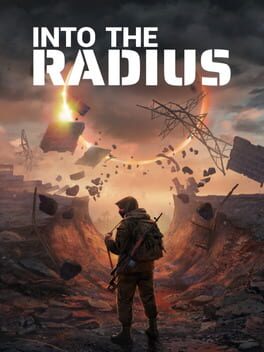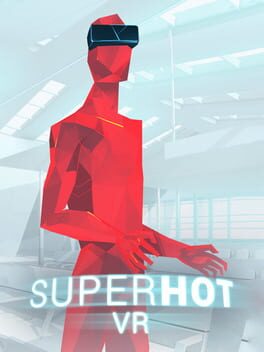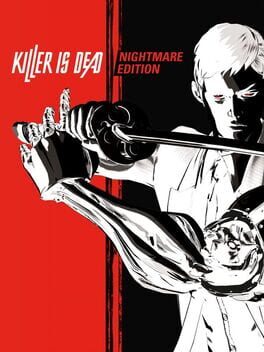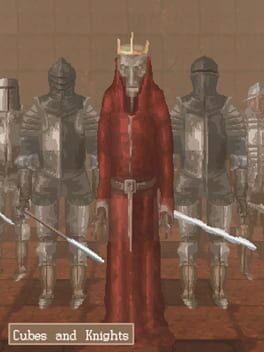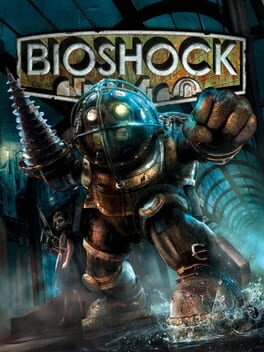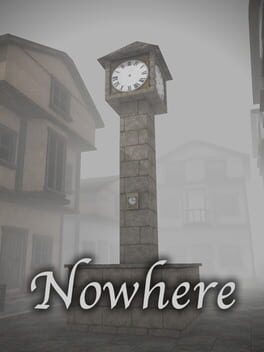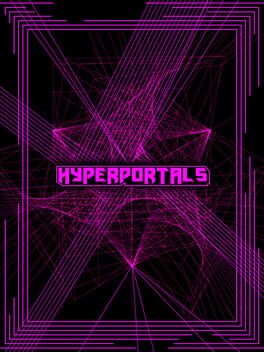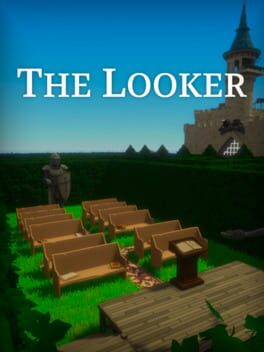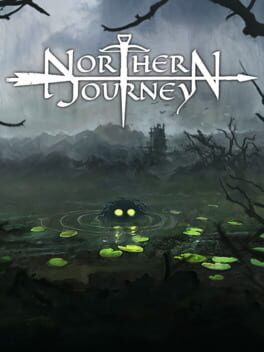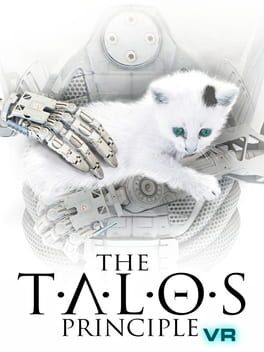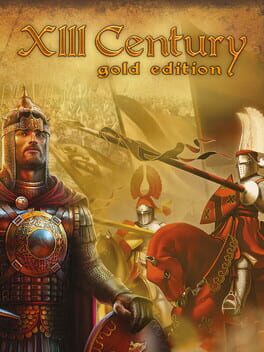AstrinSchmidt
2020
2016
2018
2022
I have now completed the game without any hints or guides. It had plenty of truly brilliant puzzles and fun moments, but I felt that near the end of the game, it devolved into tedium and the puzzles seem to get easier, repeating ideas from puzzle to puzzle. It's also overpriced. Still, the game did provide plenty of good fun, and there were still great, enjoyable puzzles right up to the end. There's some okay music and a plot, too...
2022
Not much to say about this one... The graphics are great, most of the main bosses are fun, the open world is a massive chore and will waste dozens of hours on your first playthrough. This could have been the best, or second-best, Souls game had they not decided to pad it out with the copy-pasted open world "content." As is, it's all right.
2007
For starters, the game has a strong atmosphere, an interesting setting, and an engaging narrative, delivered through audio logs. Unfortunately, (playing on hard difficulty) the game is chuck full of bullet-sponge enemies, and the act of running around these environments fighting the same enemies over and over whilst doing fetch quests which feel like they only exist to arbitrarily extend the length of the game really sucks out whatever excitement I may have had regarding discovering Rapture and the manifold stories contain therein.
It's very similar to System Shock 2 in many ways, and my experience with SS2's endless fetch quests and aimless running around is largely mirrored in Bioshock 2, though I do find that the level design is more streamlined, on top of having a more interesting setting, higher production value, and generally being more enjoyable in every way besides the lack of RPG mechanics and character building potential.
The gunplay in this game had the potential to be much more enjoyable than SS2, being a game from 2007, but it falls flat in bizarre ways — the enemies have a lot of health and brush off extreme pain such as that from being shot in the head or set aflame, so there is little to no feedback for performing well in combat; Furthermore, the enemies seem to take a second to realise that they have been killed when you headshot them, thus leading to them dropping their weapons and masks and gently falling over, as opposed to falling on the ground when they are shot. I am almost wondering if my version of Bioshock Remastered is glitched somehow, because I cannot imagine why a game from 2007 would not simply give me
le funny ragdolle when enemies die, which would have immediately improved the feeling of the combat (this does not address the core gameplay loop, but it would make experimenting with different weapons and plasmids that much more alluring).
Overall, the game feels like a glorified walking simulator — the parts that people care about are the atmosphere, art direction, story, etc; But the game spends way too much time funneling you into repetitive combat encounters to truly deliver on that promise — this could have easily been condensed into, say, six hours, so that the basic combat loop would not get so tiresome so long before the end of the game. As is, you might as well just listen to the audio logs and watch the two cutscenes people care about online, as the gameplay is just not fun.
It's very similar to System Shock 2 in many ways, and my experience with SS2's endless fetch quests and aimless running around is largely mirrored in Bioshock 2, though I do find that the level design is more streamlined, on top of having a more interesting setting, higher production value, and generally being more enjoyable in every way besides the lack of RPG mechanics and character building potential.
The gunplay in this game had the potential to be much more enjoyable than SS2, being a game from 2007, but it falls flat in bizarre ways — the enemies have a lot of health and brush off extreme pain such as that from being shot in the head or set aflame, so there is little to no feedback for performing well in combat; Furthermore, the enemies seem to take a second to realise that they have been killed when you headshot them, thus leading to them dropping their weapons and masks and gently falling over, as opposed to falling on the ground when they are shot. I am almost wondering if my version of Bioshock Remastered is glitched somehow, because I cannot imagine why a game from 2007 would not simply give me
le funny ragdolle when enemies die, which would have immediately improved the feeling of the combat (this does not address the core gameplay loop, but it would make experimenting with different weapons and plasmids that much more alluring).
Overall, the game feels like a glorified walking simulator — the parts that people care about are the atmosphere, art direction, story, etc; But the game spends way too much time funneling you into repetitive combat encounters to truly deliver on that promise — this could have easily been condensed into, say, six hours, so that the basic combat loop would not get so tiresome so long before the end of the game. As is, you might as well just listen to the audio logs and watch the two cutscenes people care about online, as the gameplay is just not fun.
2019
I loved my first five hours with the game -- the novelty of discovering an entire solar system, flying around with intuitive controls which remind me of what it feels like to fly in dreams, etc. However, the game soon started to drag on -- I was basically wandering aimlessly, filling out a checklist and looking for audio logs (bits of text on the wall) which slowly filled me in on a story I really didn't care for.
This went on for around ten hours, with me feeling like I was just filling out a checklist for no reason, until I suddenly started accessing all the "endgame" areas in quick succession in the last five hours, and it suddenly felt like I was making strides towards understanding how to finish the game. Thus, I went from making little to no progress within the first 15 hours, to suddenly beating the game. In retrospect, I feel like I could have beaten it in 10 hours if I had more of an idea of where to go to look for actually important information, and I wish there was something the game would have done to help me trim down the boring bit in the middle.
The ending is a definite highlight of the experience, and is probably why this game is so overwhelmingly positive. I don't want to sound cynical, but I think everyone knows that a good ending can overshadow a boring slog in the middle part of a story, in one's memories. I just wish this game didn't force you to do the same thing over and over so much, and maybe trimmed the fat with how much unnecessary information you end up "discovering".
Overall, it's certainly a good game, but it suffers from glaring issues with its pacing and tedious gameplay loop. That's all I can really say.
This went on for around ten hours, with me feeling like I was just filling out a checklist for no reason, until I suddenly started accessing all the "endgame" areas in quick succession in the last five hours, and it suddenly felt like I was making strides towards understanding how to finish the game. Thus, I went from making little to no progress within the first 15 hours, to suddenly beating the game. In retrospect, I feel like I could have beaten it in 10 hours if I had more of an idea of where to go to look for actually important information, and I wish there was something the game would have done to help me trim down the boring bit in the middle.
The ending is a definite highlight of the experience, and is probably why this game is so overwhelmingly positive. I don't want to sound cynical, but I think everyone knows that a good ending can overshadow a boring slog in the middle part of a story, in one's memories. I just wish this game didn't force you to do the same thing over and over so much, and maybe trimmed the fat with how much unnecessary information you end up "discovering".
Overall, it's certainly a good game, but it suffers from glaring issues with its pacing and tedious gameplay loop. That's all I can really say.
Not much to say about this one. It's a short, simple horror game. It honestly feels like an Amnesia knock-off in more ways than one, but whatever, it's not offensively bad, and has been free for years. I only played this now because I remember playing it on mobile years ago.
The presentation is not bad, and the story could have been something interesting, if developed further.
The presentation is not bad, and the story could have been something interesting, if developed further.
2022
This is not a game, it is simply a small collection of surface-level observations retreading the same tired themes of player control and the nature of linear storytelling in video games. I like pretentious games, but again, this can hardly be called a "game", and it is so stupefyingly unambitious and uninteresting in the way it presents these ideas that I just can't shake the cheap, low-effort vibe the "game" gives off. Go play Pathologic or something, it's also a Russian game where three parallel stories which cannot logically co-exist are tied into one, but that one is actually good.
2022
The creator obviously understood what made The Witness a success, as both the puzzles and the audio recordings demonstrate the design principles behind The Witness, except Subcreation Studio put a funny spin on most of them. The game never really gets difficult like The Witness does, though there is one noteworthy puzzle near the end.
Which brings me to my next point: A lot of people will say, "This is a must-play for anyone who has played The Witness", and while I do agree, I would also add that you should play The Witness before playing this game, as it clearly expects you to understand the things which The Witness teaches you coming into the game, both in order to solve the puzzles, and (more importantly) to understand the humour. I could be wrong, of course, but as someone who has beaten The Witness, I feel that my experience with The Looker would have been considerably lessened had I not had the full experience of beating the original game coming into this one.
Overall, this game captures the pretty graphics of The Witness, and even manages to replicate a bit of the puzzle-solving brilliance of The Witness whilst poking fun at the whole thing. Would recommend.
Which brings me to my next point: A lot of people will say, "This is a must-play for anyone who has played The Witness", and while I do agree, I would also add that you should play The Witness before playing this game, as it clearly expects you to understand the things which The Witness teaches you coming into the game, both in order to solve the puzzles, and (more importantly) to understand the humour. I could be wrong, of course, but as someone who has beaten The Witness, I feel that my experience with The Looker would have been considerably lessened had I not had the full experience of beating the original game coming into this one.
Overall, this game captures the pretty graphics of The Witness, and even manages to replicate a bit of the puzzle-solving brilliance of The Witness whilst poking fun at the whole thing. Would recommend.
2021
This is a highly atmospheric FPS/platformer with a focus on exploration, and it is the explorwtion aspect which I find the most interesting — there are health upgrades hidden around the levels like secrets in classic FPS games, and the weapon mechanics seem to have been crafted to facilitate and encourage exploration — ammunition pools start off very limited, which increases the value of ammo pickups found around the maps, but there are ammo capacity upgrades on each level, making sure that you get progressively more capable throughout the game, assuming that you bother finding them. The levels generally lack a clear direction, and end up relying on the player making their way through and exploring the stages to achieve their objectives, even if the way to achieve it was not initially clear
This sense of exploration also extends to the game's direction on a macro scale, as the game frequently switches gears both in terms of tone, taking on a more mysterious and unsettling tone in the beginning, and leaning towards comedy by the end, and gameplay, as there are not only frequent boss fights and level gimmicks, but also completely new sets of gameplay mechanics being introduced in certain levels. This made the game a joy to play through, as it never let any one aspect of it get stale or boring, and frequently switched things up.
Speaking of switching things up, the game's environments are mostly distinct, with the game's unique look being expressed through many varied environments; Whatever environments might look similar, the game's excellent soundtrack (coupled with the aforementioned gameplay gimmicks) will be sure to set each area apart in the player's mind. The game is quite frankly beautiful, and though I do wish that the game had baked-in lighting, so that I might see what that would look like, I cannot deny that the flat lighting does wonders to make the game feel more dreamlike.
This dreamlike atmosphere also extends to the story, with every character having exaggerated designs and motions, and having very expressive and memorable dialogue, whilst maintaining the surreal feel of the whole setting.
This last point brings me to my one real point of contention with the game — the story. While the atmosphere builds itself up as mysterious and surreal, the story itself is played quite straight, and there is no real poignancy or insight to be found — to be honest, I dare say that it kind of feels like the whole journey was pointless, a point which the game itself seems to lampshade. Whatever the case, the story is not all that important since the atmosphere and exploration are clearly the draw of the game, but the inclusion of philosophical discourse could have elevated this game to something I could truly recommend to everyone in my mind.
Finally, the FPS gameplay. The game features an interesting projectile system, where all of your shots arc in a realistic way. This makes aiming slightly more engaging than simply using a hitscan weapon, but frankly, I didn't find the actual FPS gameplay to be all that exciting — I spent most of the game circlestrafing whilst shooting enemies with my sling, because the stingy ammo limits made me hesitant to use the ammo at all. There is great enemy variety both in terms of appearance and attack patterns, but the sling was simply too versatile for me to have considered using other weapons unless I was surrounded, which is a shame.
Overall, if you think you'd be interested on the game based on the screenshots — go for it, it's actually more interesting to play than it might look. If the atmosphere of the game does not immediately appeal to you based on the screenshots, then you might not be the right audience for the game. I myself found the whole experience thoroughly enjoyable, but I was immediately interested in the game from seeing its page on Steam.
This sense of exploration also extends to the game's direction on a macro scale, as the game frequently switches gears both in terms of tone, taking on a more mysterious and unsettling tone in the beginning, and leaning towards comedy by the end, and gameplay, as there are not only frequent boss fights and level gimmicks, but also completely new sets of gameplay mechanics being introduced in certain levels. This made the game a joy to play through, as it never let any one aspect of it get stale or boring, and frequently switched things up.
Speaking of switching things up, the game's environments are mostly distinct, with the game's unique look being expressed through many varied environments; Whatever environments might look similar, the game's excellent soundtrack (coupled with the aforementioned gameplay gimmicks) will be sure to set each area apart in the player's mind. The game is quite frankly beautiful, and though I do wish that the game had baked-in lighting, so that I might see what that would look like, I cannot deny that the flat lighting does wonders to make the game feel more dreamlike.
This dreamlike atmosphere also extends to the story, with every character having exaggerated designs and motions, and having very expressive and memorable dialogue, whilst maintaining the surreal feel of the whole setting.
This last point brings me to my one real point of contention with the game — the story. While the atmosphere builds itself up as mysterious and surreal, the story itself is played quite straight, and there is no real poignancy or insight to be found — to be honest, I dare say that it kind of feels like the whole journey was pointless, a point which the game itself seems to lampshade. Whatever the case, the story is not all that important since the atmosphere and exploration are clearly the draw of the game, but the inclusion of philosophical discourse could have elevated this game to something I could truly recommend to everyone in my mind.
Finally, the FPS gameplay. The game features an interesting projectile system, where all of your shots arc in a realistic way. This makes aiming slightly more engaging than simply using a hitscan weapon, but frankly, I didn't find the actual FPS gameplay to be all that exciting — I spent most of the game circlestrafing whilst shooting enemies with my sling, because the stingy ammo limits made me hesitant to use the ammo at all. There is great enemy variety both in terms of appearance and attack patterns, but the sling was simply too versatile for me to have considered using other weapons unless I was surrounded, which is a shame.
Overall, if you think you'd be interested on the game based on the screenshots — go for it, it's actually more interesting to play than it might look. If the atmosphere of the game does not immediately appeal to you based on the screenshots, then you might not be the right audience for the game. I myself found the whole experience thoroughly enjoyable, but I was immediately interested in the game from seeing its page on Steam.
This game has interesting puzzles (particularly in Road to Gehenna), some genuinely funny writing (again, mostly in Road to Gehenna), and potent philosophical themes and musings. Essentially, the game discusses the end of the world, immortality through memories, the nature of AI and consciousness, and what it all means.
All of this is wrapped up in a package of neat puzzles solved entirely in a 3D space from a first-person perspective, relying on interacting with the environment through perspective puzzles with lasers, basic topology-based puzzles with jammers, a time travel/parallel universe gimmick, and a bunch of other stuff. Unfortunately, most of the puzzles in the base game are mindlessly easy (coming from Stephen's Sausage Roll and The Witness, anyway) but Road to Gehenna provides some challenging and truly ingenious puzzles. Overall, the puzzle-solving is fun, and occasionally truly challenging (hence, rewarding).
So yeah, I would recommend this game to people who like waxing philosophical (like myself) and simple puzzles. The graphics and sound are pretty, and there is also some exploration with finding hidden/hard-to-reach stars, but it's not particularly interesting.
The game deserves 4 stars just for the story and presentation, and some of the better puzzles push it up to 4.5 stars for me. Would have been 5 stares if there weren't so many braindead easy puzzles.
All of this is wrapped up in a package of neat puzzles solved entirely in a 3D space from a first-person perspective, relying on interacting with the environment through perspective puzzles with lasers, basic topology-based puzzles with jammers, a time travel/parallel universe gimmick, and a bunch of other stuff. Unfortunately, most of the puzzles in the base game are mindlessly easy (coming from Stephen's Sausage Roll and The Witness, anyway) but Road to Gehenna provides some challenging and truly ingenious puzzles. Overall, the puzzle-solving is fun, and occasionally truly challenging (hence, rewarding).
So yeah, I would recommend this game to people who like waxing philosophical (like myself) and simple puzzles. The graphics and sound are pretty, and there is also some exploration with finding hidden/hard-to-reach stars, but it's not particularly interesting.
The game deserves 4 stars just for the story and presentation, and some of the better puzzles push it up to 4.5 stars for me. Would have been 5 stares if there weren't so many braindead easy puzzles.
